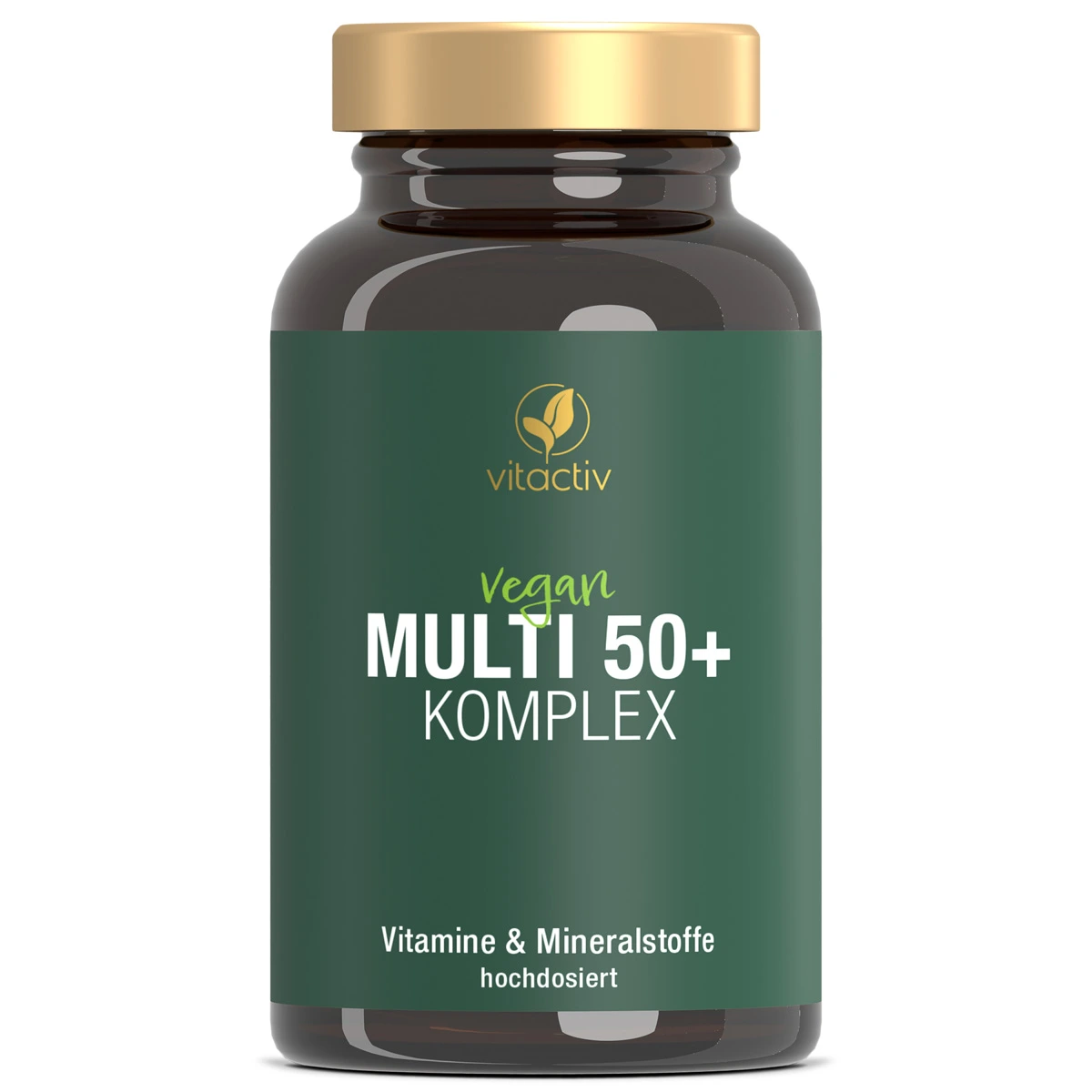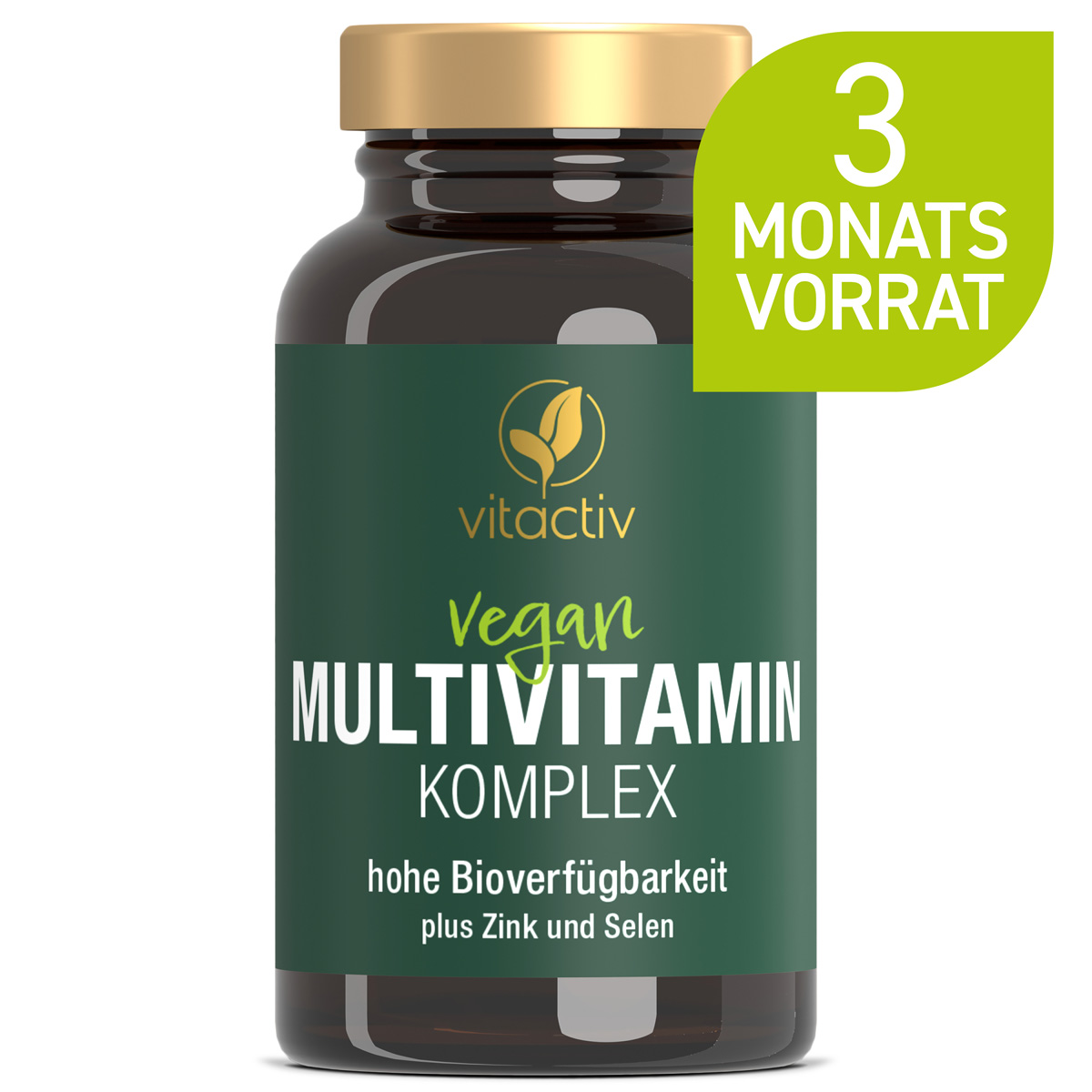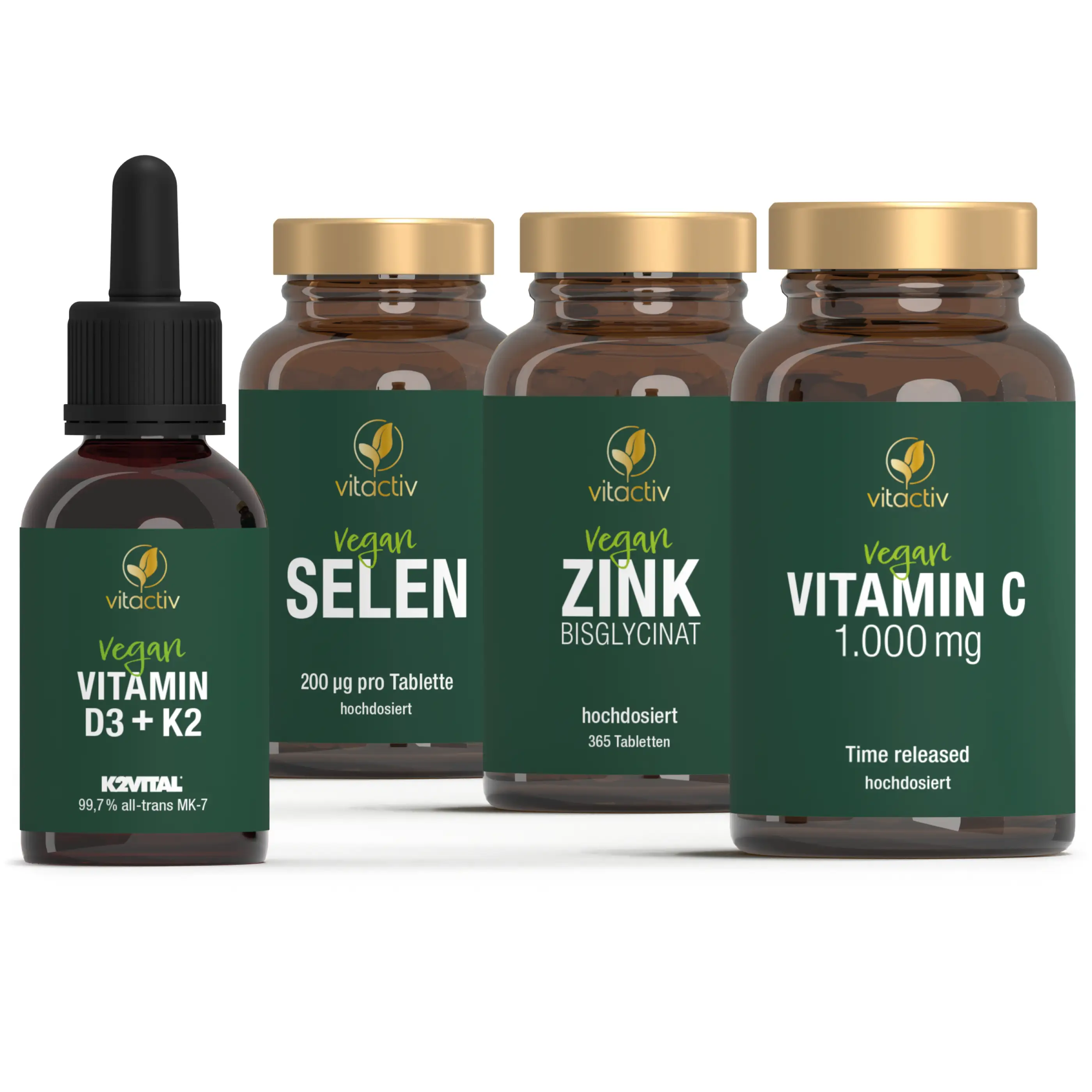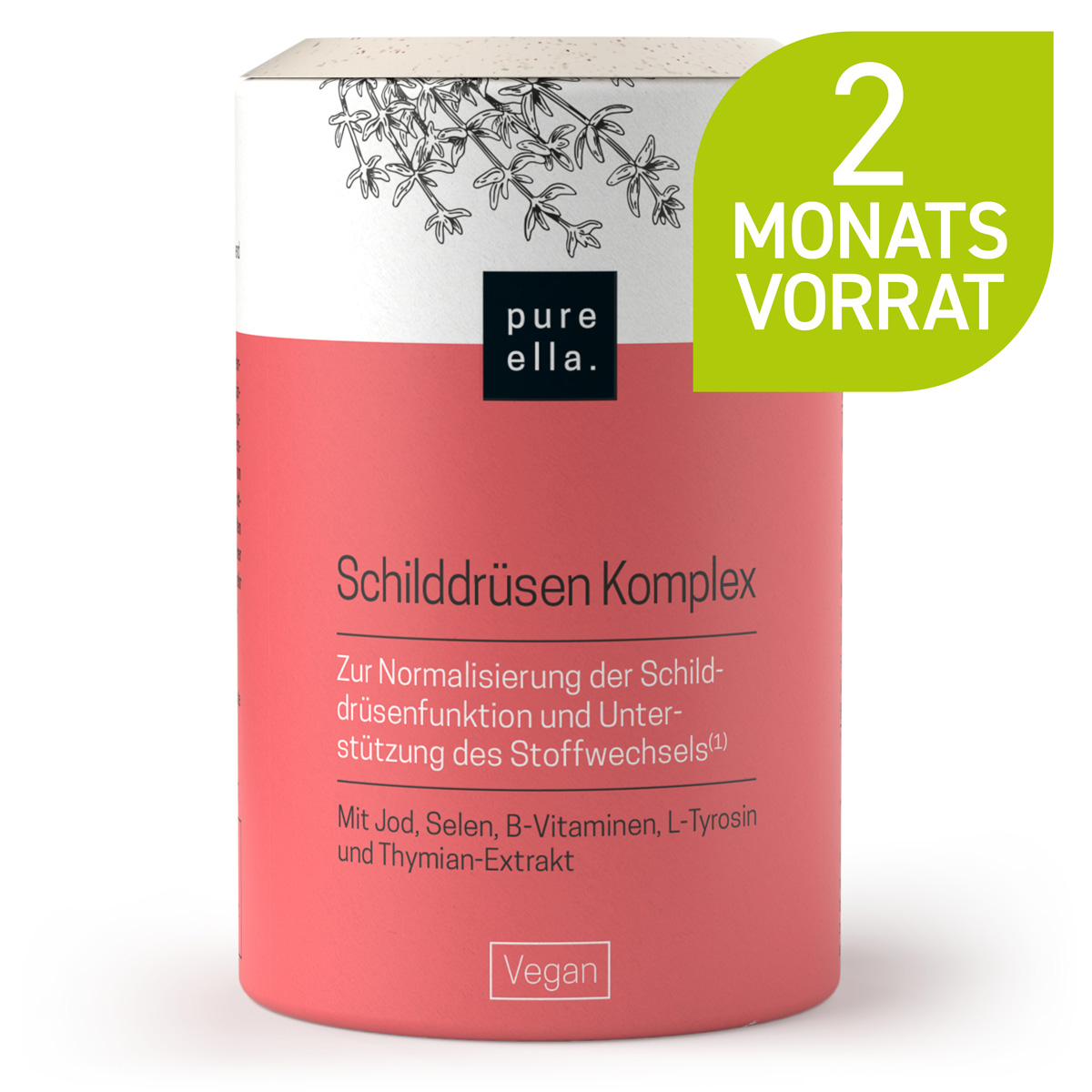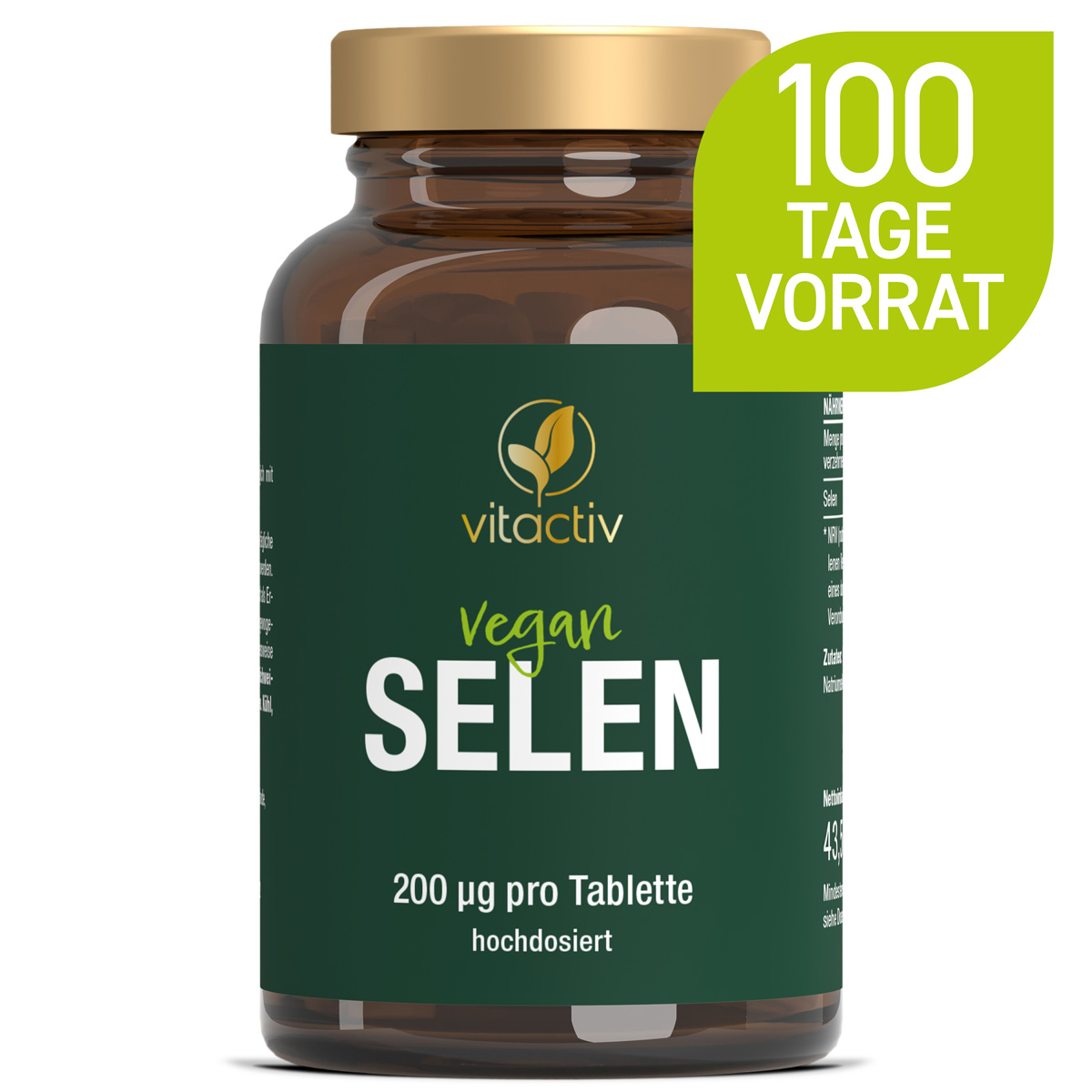Selenium
Content: 0.045 kg (€279.78* / 1 kg)
€12.59 €13.99
(€279.78 / 1 kg)Content: 0.045 kg (€339.78* / 1 kg)
€15.29 €17.99
(€339.78 / 1 kg)Content: 0.048 kg (€318.54* / 1 kg)
€15.29 €16.99
(€318.54 / 1 kg)Content: 0.044 kg (€327.05* / 1 kg)
€14.39 €15.99
(€327.05 / 1 kg)Content: 0.0912 kg (€219.19* / 1 kg)
€19.99
(€219.19 / 1 kg)What do we need selenium for?
Selenium is an essential trace element that is a component of over 20 enzymes and proteins with different properties. As an antioxidant, selenium provides protection against free radicals, contributes to the normal functioning of the immune system and thyroid gland and helps to maintain healthy hair and nails.
Selenium from food
Selenium cannot be produced by the body itself, which is why it must be obtained from food. Germany in particular, along with northern Europe, is one of the countries with predominantly selenium-poor soils, meaning that our crops such as cereals, potatoes and vegetables contain very little selenium. As a result, it is often difficult to meet the daily requirement through food.
It is no coincidence that one of the foods with an above-average selenium content comes to us from the Amazon region: the Brazil nut. They contain an impressive 103 micrograms of selenium per 100 grams.
Nevertheless, Brazil nuts should be consumed with caution: Compared to other foods, the proportion of natural radioactive substances in Brazil nuts is particularly high. The Federal Office for Radiation Protection (BfS) therefore advises adults to consume Brazil nuts in moderation and considers the consumption of just two Brazil nuts per day to be critical. As a precaution, the BfS advises pregnant and breastfeeding women as well as children and adolescents not to eat Brazil nuts at all.
As animal feed is enriched with selenium, animal foods are particularly suitable for ensuring a balanced selenium balance. Vegetarians and vegans should therefore pay particular attention to their selenium content.
A portion of mackerel (70 g) contains 27.3 µg of selenium and thus covers almost half of the regular daily requirement of 60 to 70 µg of selenium.
We conclude that a sufficient intake of selenium through food is possible. However, you should always keep a close eye on your intake of the trace element in your daily diet.
What does climate change have to do with selenium deficiency?
In fact, the selenium content in the soil is one of the many examples of how climate change has a direct impact on our well-being. Increased precipitation causes more selenium to be washed out of the soil. An effect that ultimately makes itself felt in the food we grow. Researchers at ETH Zurich have determined that the risk of selenium deficiency is likely to increase in many regions around the world over the course of the century.1
Fertilizers containing selenium can be used as a countermeasure. In addition, animal feed may be enriched with selenium in the EU - one of the reasons why meat or eggs in particular contribute to a secure selenium supply.
The effects of selenium deficiency and selenium excess
It has been known for decades from various studies that a selenium deficiency results in an increased risk of prostate, colon and lung cancer.2 Maintaining a healthy selenium balance can therefore not only protect cells from oxidative stress, but can also be seen as part of holistic cancer prevention.
Selenium also plays an important role in the function of the thyroid gland: it prevents the thyroid hormone thyroxine (T4) from being converted into its active form triiodothyronine (T3). If there is a selenium deficiency, this can further exacerbate an already existing hypothyroidism. As selenium influences sperm formation, infertility in men is also a possible symptom of selenium deficiency.
Despite the essential importance of the trace element, it is important not to exceed the recommended intake. Otherwise, selenium poisoning, known as selenosis, can occur. The first signs of this include tiredness and joint pain.
When taking selenium as a dietary supplement, always adhere to the recommended intake values on the packaging and only buy certified selenium products. If in doubt - better safe than sorry: If you suspect you have a selenium deficiency, you should always consult your GP first. By means of a blood test, they can easily determine whether you have a sufficient level of selenium.
Why buy selenium from Feelgood?
While the German Nutrition Society (DGE) recommends an average daily intake of 60 to 70 micrograms of selenium for adults, the European Food Safety Authority (EFSA) recommends a maximum dose of 255 micrograms per day. That's why you'll find both the "regular" dosage and the dosage for increased requirements. Selenium is also available in organic quality and as a combination preparation with other vital substances. All products are tested and certified according to the strictest specifications.
1Source:https://idw-online.de/de/news668285
2Source:https://idw-online.de/de/news60748
If you have any questions or need advice, please contact us.
Call us at:
0800 678 7997
Write us a message here
Use our chat at the bottom left
Search our FAQs here

